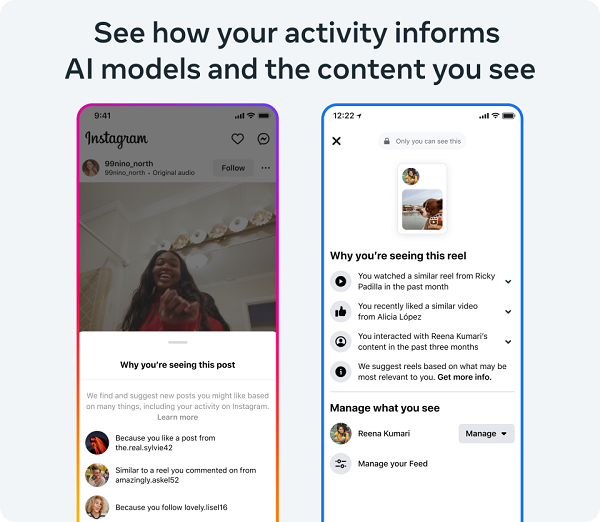As social media platforms continue to evolve, feed algorithms play a critical role in determining the content users see. Meta, the company behind platforms like Facebook and Instagram, has been investing in artificial intelligence (AI) to improve the user experience. In this post, we will explore Meta’s insights into evolving feed algorithms and AI, highlighting the impact on content visibility and user engagement.
I. The Importance of Feed Algorithms: Feed algorithms are at the core of social media platforms, determining the order and relevance of content displayed to users. These algorithms analyze various signals, including user preferences, engagement patterns, and content quality, to curate personalized feeds. The goal is to deliver content that is most likely to capture users’ attention and keep them engaged on the platform.
II. Meta’s AI-Powered Feed Algorithms: Meta has been leveraging AI to refine and enhance its feed algorithms across its platforms. Here are some key insights into Meta’s approach:
a. Personalization: Meta’s feed algorithms prioritize personalized content, taking into account factors such as users’ interests, previous engagement, and connections. By understanding individual preferences, the algorithms aim to deliver content that aligns with users’ interests, increasing the likelihood of engagement and user satisfaction.
b. Diverse Content: Meta recognizes the importance of diversity in users’ feeds. The algorithms are designed to provide a mix of content from various sources, including friends, family, and public figures. This approach aims to create a well-rounded experience and avoid echo chambers where users are only exposed to content that confirms their existing beliefs.
c. Quality Signals: The algorithms consider various quality signals to determine content visibility. Factors such as engagement metrics (likes, comments, shares), relevance, and recency play a role in prioritizing content. This encourages creators and brands to produce high-quality, engaging content that resonates with the audience and increases the likelihood of organic reach.
III. Balancing Algorithmic Control and User Preferences: Meta acknowledges the challenge of balancing algorithmic control with user preferences. While algorithms aim to optimize content relevance, there is also a need to empower users to have control over their feed. Meta has introduced features such as feed controls and content preferences to allow users to customize their experience and influence the content they see.
IV. The Role of AI in Content Moderation: AI plays a vital role in content moderation, helping identify and remove harmful or violating content. Meta’s AI-powered systems use machine learning algorithms to proactively detect and mitigate issues like hate speech, misinformation, and graphic content. The goal is to create a safe and supportive environment for users while preserving freedom of expression.
V. Transparency and User Empowerment: Meta recognizes the importance of transparency and user empowerment in shaping feed algorithms. The company aims to provide users with insights into how algorithms work and the factors that influence content visibility. This transparency helps build trust and empowers users to make informed decisions about their online experience.
VI. Continuous Iteration and Improvement: Feed algorithms and AI systems are not static but continuously evolve based on user feedback and insights. Meta actively seeks feedback from users and makes iterative improvements to its algorithms to enhance content relevance, reduce misinformation, and improve the overall user experience.
Meta’s investment in AI-powered feed algorithms demonstrates its commitment to delivering personalized, diverse, and high-quality content to users. By leveraging AI and incorporating user feedback, Meta aims to strike a balance between algorithmic control and user preferences. Transparency and user empowerment are key principles guiding Meta’s approach, ensuring users have insights into algorithmic processes and the ability to customize their feed experience. As feed algorithms and AI continue to evolve, Meta’s focus on continuous improvement will shape the future of content discovery and engagement on its platforms.
